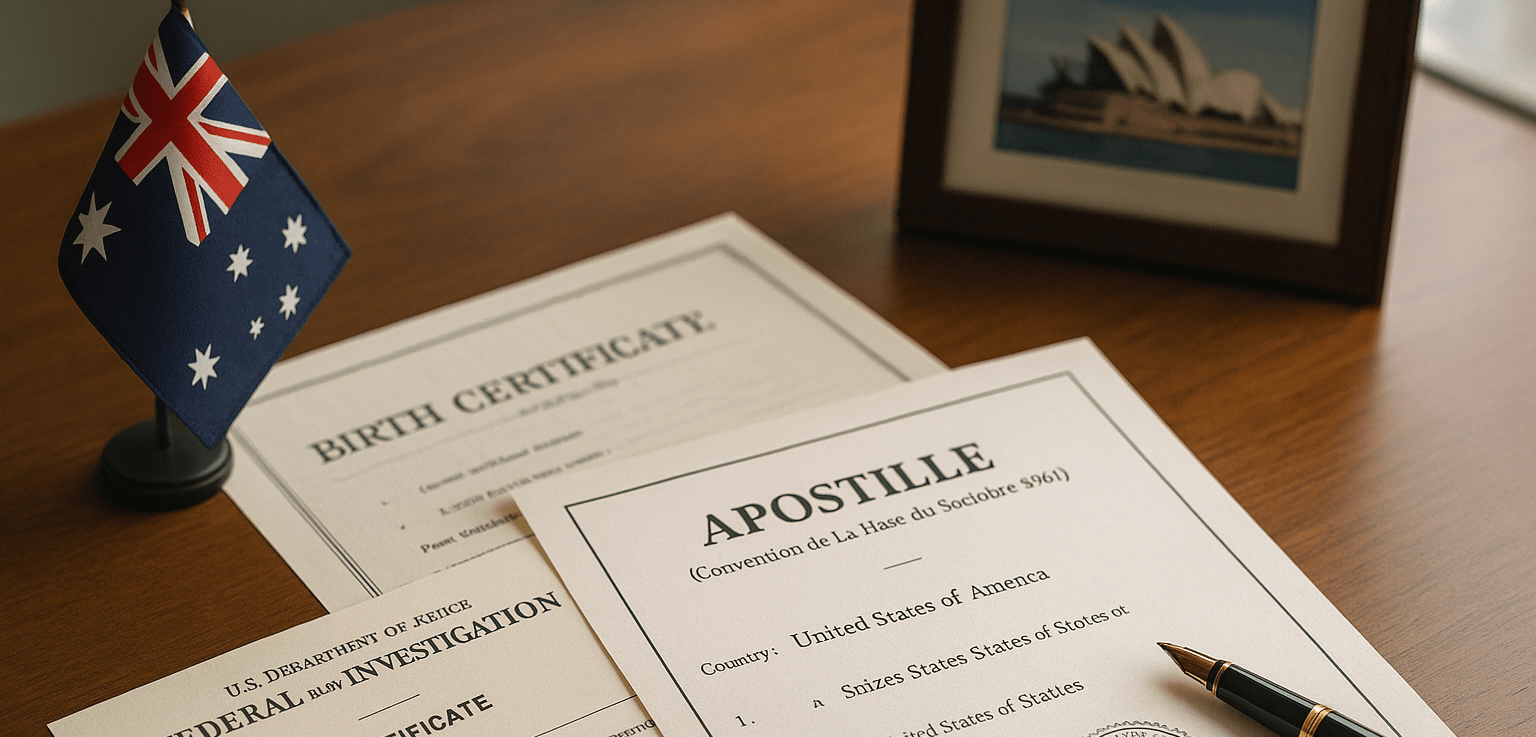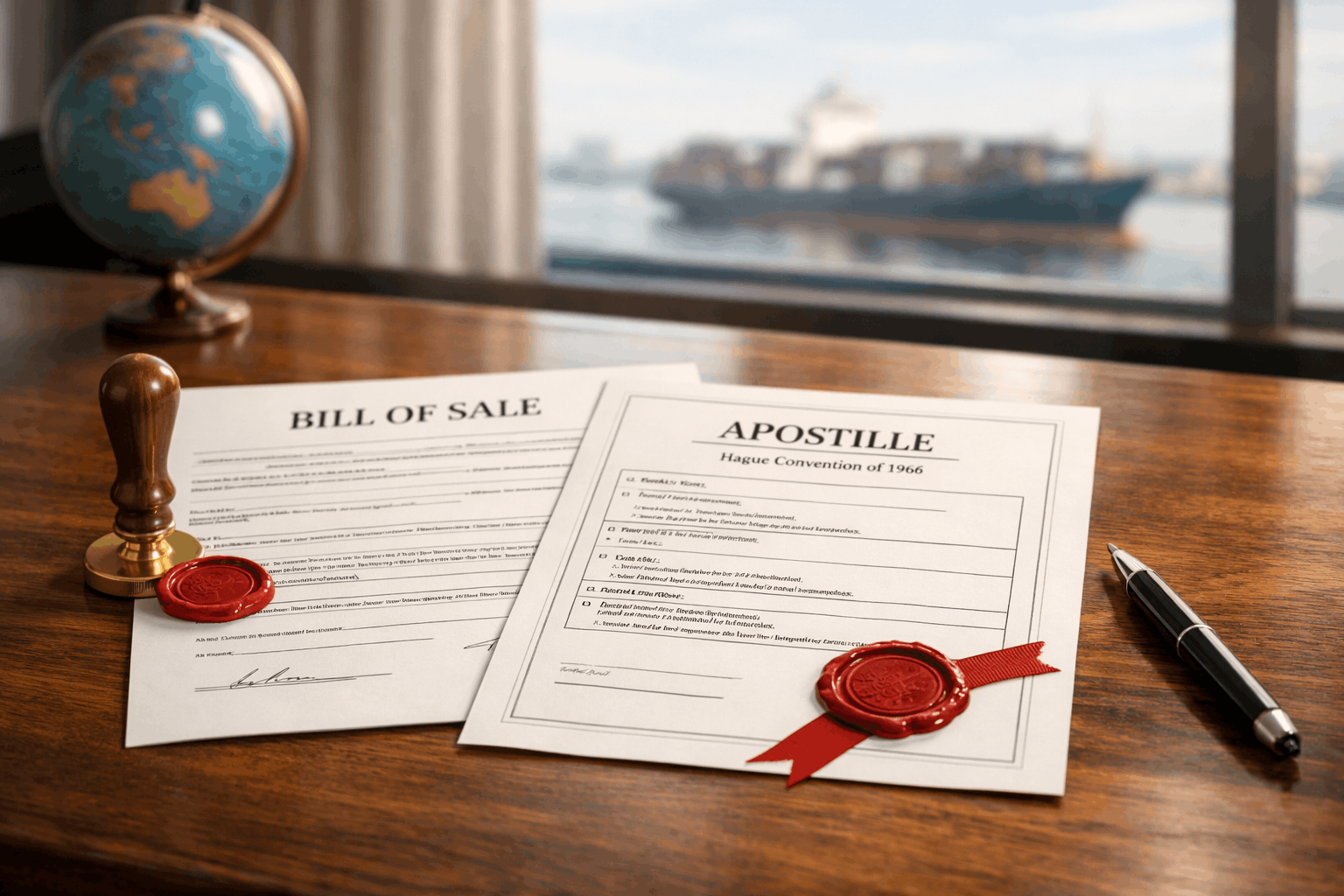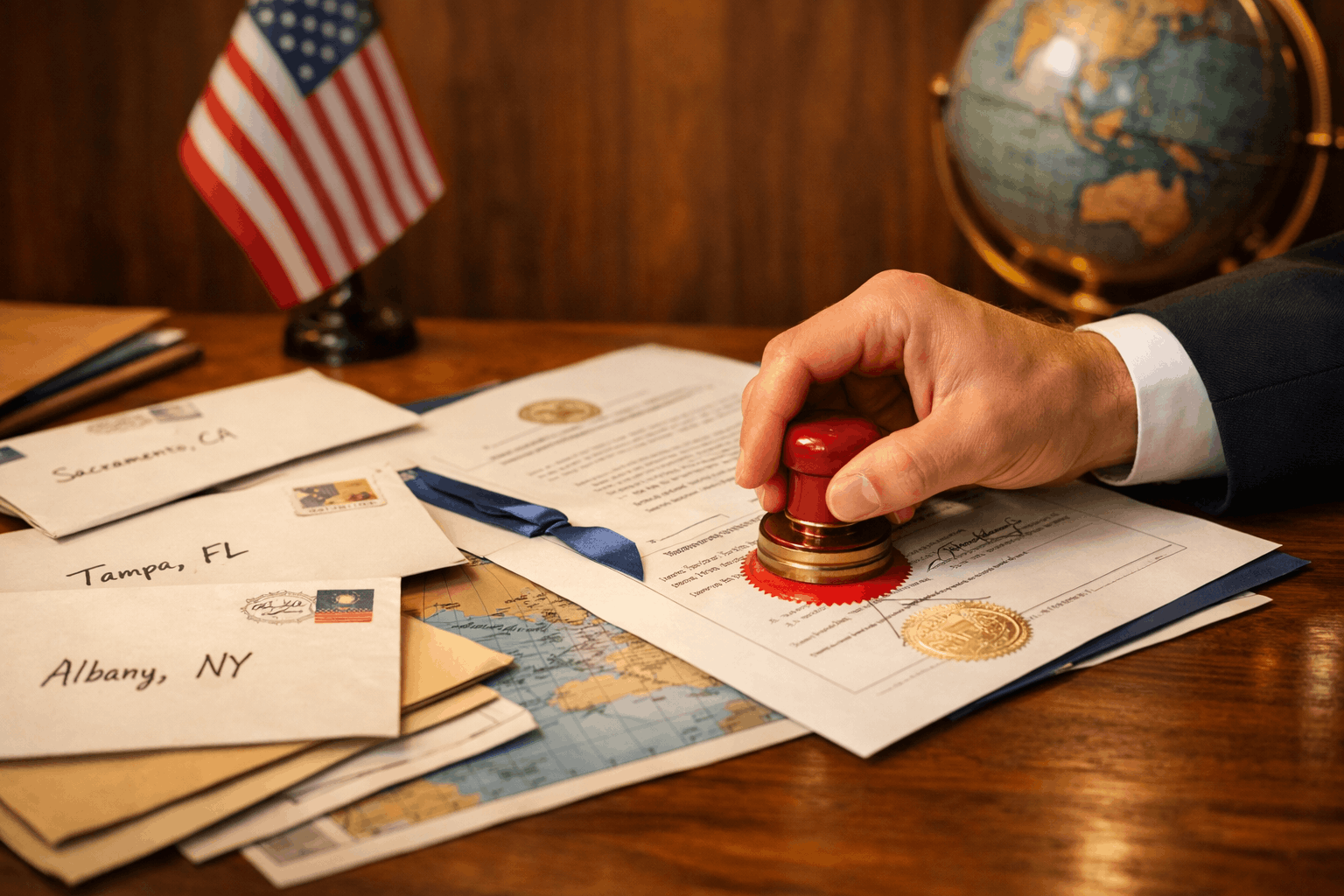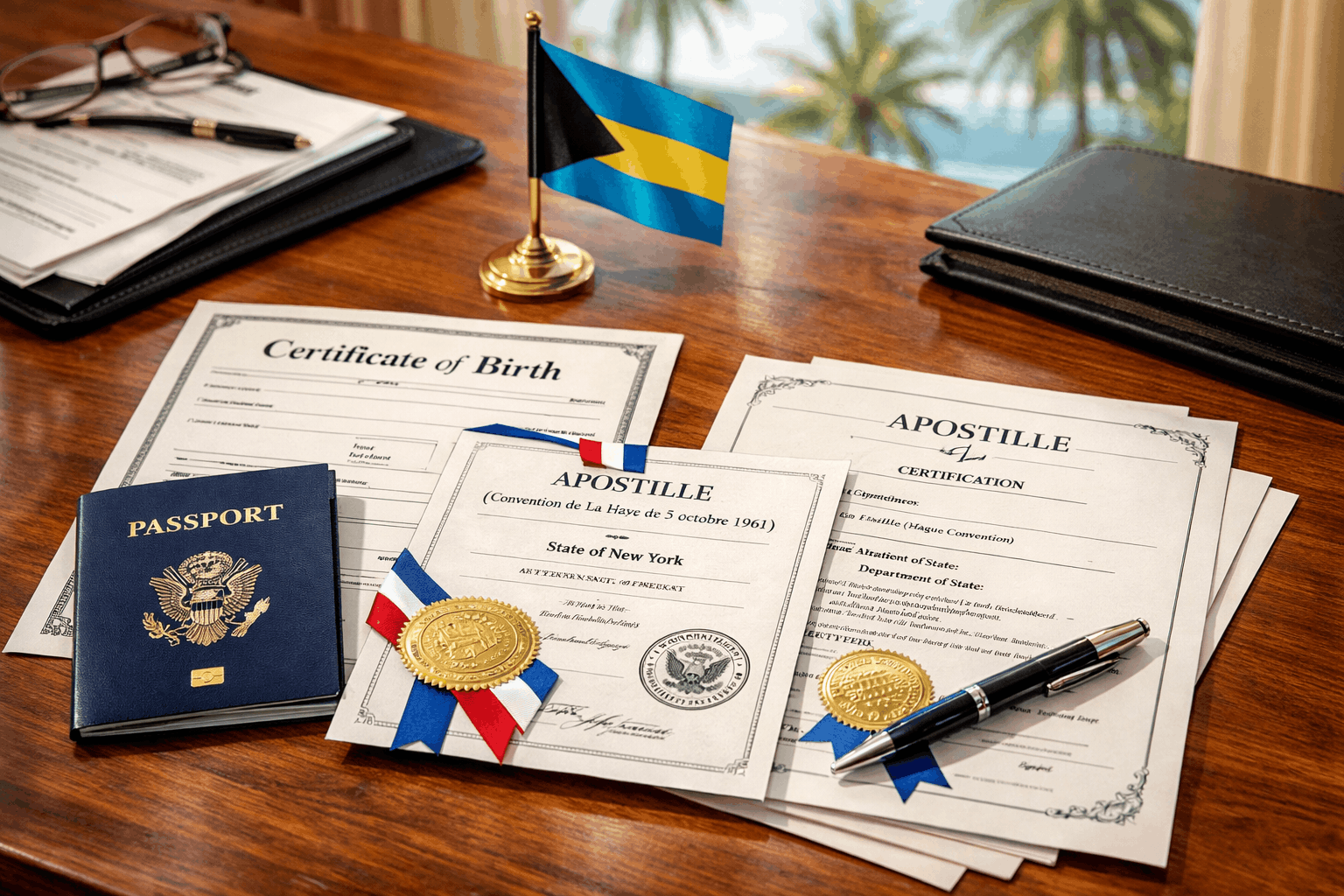
Apostille Your U.S. Documents for Use in Australia
Are you thinking of migrating to Australia? There’s some paperwork to handle before you can embrace the Aussie culture — whether for a long-term stay or permanent relocation. If you’re a U.S. citizen about to move to Australia, you’ve probably heard of document authentication. In this guide, we’ll explain how to smooth international transitions with an apostille for Australia and what partnering up with a professional apostille agency entails.
When You Need to Authenticate U.S. Documents for Australia
Moving to Australia from the U.S. likely requires you to authenticate several personal or professional documents. An apostille verifies that they are genuine and meet international legal standards when you’re relocating for family, study, work, or business. Let’s look at the most typical scenarios that prompt the need for this authentication.
Relocating or Applying for Permanent Residency
The most common reason to obtain an apostille for Australia is immigration. The competent local authorities will ask you to prove your identity and marital status if you apply for a visa or a resident permit. Such a process involves presenting apostilled documents, including:
- Birth certificates
- Police clearances (state-issued or FBI background checks)
- Marriage certificates
- Affidavits of single status
Properly authenticated foundational records confirm your eligibility for a successful Australian visa or permanent residency application.
University Enrollment and Academic Recognition
When you move to Australia for higher education or employment, local institutions and companies often request academic records to verify your educational qualifications. Usually, documents you need to apostille are:
- Diplomas and degrees
- Transcripts and report cards
- Letters of status verification or recommendation
The apostille assures the receiving authority that your credentials are legitimate, paving the way to enrollment or eligibility for certain programs.
Employment and Professional Licensing
Like many other countries, Australia upholds strict regulations on accepting foreign professional licenses, especially in healthcare and law. You’re likely to be asked to have these documents authenticated:
- Professional licenses or certifications
- Records of specialized training
- Letters of employment verification
The main purpose is to help Australian employers or licensing boards confirm your background, thus permitting you to practice the profession.
Business Setup and Legal Matters
Expanding a business or engaging in legal proceedings in Australia requires document authentication. Apostilled corporate documents to establish operations or legal standing include:
- Articles of incorporation
- Business registrations
- Powers of attorney
- Contracts and agreements
Authenticating these papers makes your business or legal actions binding in Australia, such as signing deals, opening bank accounts, or registering branch offices.
Preparing Your U.S. Documents for Australian Authorities
Impeccable preparation is key to successfully obtaining a U.S. document apostille for Australia. Each step matters — a single oversight might stall your effort for a visa, job, or college application. Here are useful tricks to arrange all necessary documentation for Australia, preventing costly delays that baffle your experience.
Make Sure the Document Is Eligible for Apostille
Though you can apostille various documents, not every one of them qualifies. To meet apostille standards, records must be issued by an authorized U.S. official, such as a state registrar or federal agency. Examples of eligible ones include birth certificates from a state vital records office and court rulings from a district court.
Confirm Whether It Needs to Be Notarized First
Copies printed from the Internet aren’t enough — they must be either certified by the issuing authority or notarized by an active notary public. The requirements for your actions depend on the type of papers, as explained in detail below.
- Public documents: Certified originals issued by the government, including birth and death certificates, don’t need to be notarized. You can send them directly for apostille processing.
- Private documents: Those created privately, such as letters of consent and affidavits, must be notarized before they can be apostilled. The notary will verify identity and witness the signature, adding an extra layer of credibility.
While the rule is simple, missing notarization is one of the most frequent missteps, leading to immediate apostille rejection upon state submission.
Find the Proper U.S. Authority
The issuing authority of your document determines where it can be authenticated. A state-issued record will typically go to the Secretary of State’s office in that particular state. If it was issued by a federal agency — like an FBI background check — you’ll submit it to the U.S. Department of State for processing. Choosing the right authority from the start helps you accelerate the timeline.
Apply for the Apostille with the Correct Office
Once you know which authority to send your apostille request to, follow its specific submission guidelines. Each has unique requirements for cover letters, request forms, fee payments, and return delivery labels. Some states offer walk-in services, while others only accept mail submissions. Thorough research allows you to use the right forms and plan your budget accordingly without rushing things.
Check Formatting and Seals Before Sending Abroad
Last but not least, double-check everything before sending your apostilled document to Australia. Ensure the formatting is correct, the seals are legible, and no alteration to the content. Even minor flaws, like using fragile thermal paper, might cause complications, so take your time to prepare the document correctly.
Processing Time and Costs for Australia Apostilles
Timing and budgeting are crucial factors to consider when requesting apostilles for Australia. Unexpected delays or extra costs may disrupt visa applications and put your international move on hold. Here’s what you should know to avoid last-minute stress.
Average Timelines by State and Federal Agencies
Processing times vary among issuing authorities. State-level apostilles typically take 5 to 20 days for standard service, while expedited or rush options can reduce that to less than 3 days for an additional fee. Federal apostilles take at least 5 weeks, and walk-in service is limited. Also factor in postal delivery times, as they add a couple of days, especially for international returns.
Estimated Fees and Mailing Considerations
The total investment is calculated based on government authentication fees, optional service charges, and courier or delivery costs. In particular, state apostille fees usually fall between $5 and $20, while federal apostilles start at $20. Expedited service fees are extra, and you should budget for trackable shipping services to and from the apostille office, as well as the final shipment to Australia.
Certified Copies and Document Format Requirements in Australia
Certain institutions may require certified copies or specific formats. Certified copies must be legible and properly stamped by the issuing office or notary. Most authorities prefer durable paper and dark seals to ensure longevity and legal compliance. Apostilled documents must also remain unaltered and damage-free.
Why Work with a Professional Apostille Agency for Australia
The complexity of international document authentication causes many to opt for professional apostille services for Australia. Experts navigate the intricate domestic and Australian requirements on your behalf, performing vital pre-checks for accuracy and efficiency during the apostille process. Safeguard your move and optimize timing with a trusted apostille agency today!
Ready for Your Next Chapter Down Under
No matter if you’re relocating, studying, or doing business, getting the paperwork properly apostilled lays the foundation for a seamless transition. We hope that with this guide and the right help from an agency like EZ Apostille, you’ll be ready to start an exciting new chapter in Australia.
FAQ
In case you still have questions about U.S. document apostilles for Australia, we have answers to the most common ones here.
Can I Use One Apostilled Document for Multiple Australian Institutions?
Yes, as long as it meets the requirements of each institution. A single apostille can often be reused unless the receiving organization requires its own copy.
Is an Apostille Required for All Types of U.S. Documents Sent to Australia?
No, only public and notarized private documents intended for legal use in Australia require an apostille.
Can I Apply for an Apostille From Abroad If I Live in Australia Now?
Of course! Many professional services like ours allow you to request apostilles remotely using mail or courier. We have served U.S. citizens abroad, managing the domestic authentication process without them needing to return.
Do Digital or Electronic Apostilles Work for Australia?
Yes, this country does accept e-Apostilles, but it’s best to confirm with the receiving authority first. Some places still prefer the physical certification.
How Long Does an Apostille Remain Valid for Use in Australia?
The apostille doesn’t expire in general, so you may use it as long as you can. However, the underlying documents might be subject to time limits, such as medical reports or FBI background checks that are typically valid for a maximum of six months.
Do I n\Need to Re-Apostille if I Renew or Update My Visa or License?
Yes, you’ll need a fresh apostille for your renewed or updated document. Using an old apostille on outdated information might lead to rejection.
What Should I Do If My Apostilled Document is Rejected by an Australian Authority?
You may ask the institution for the reason. Consult with your service provider to resolve the issue — formatting or certification, for instance — and resubmit your correct apostille to the authority. EZ Apostille specializes in troubleshooting problems, so don’t hesitate to reach out if you encounter rejection.





